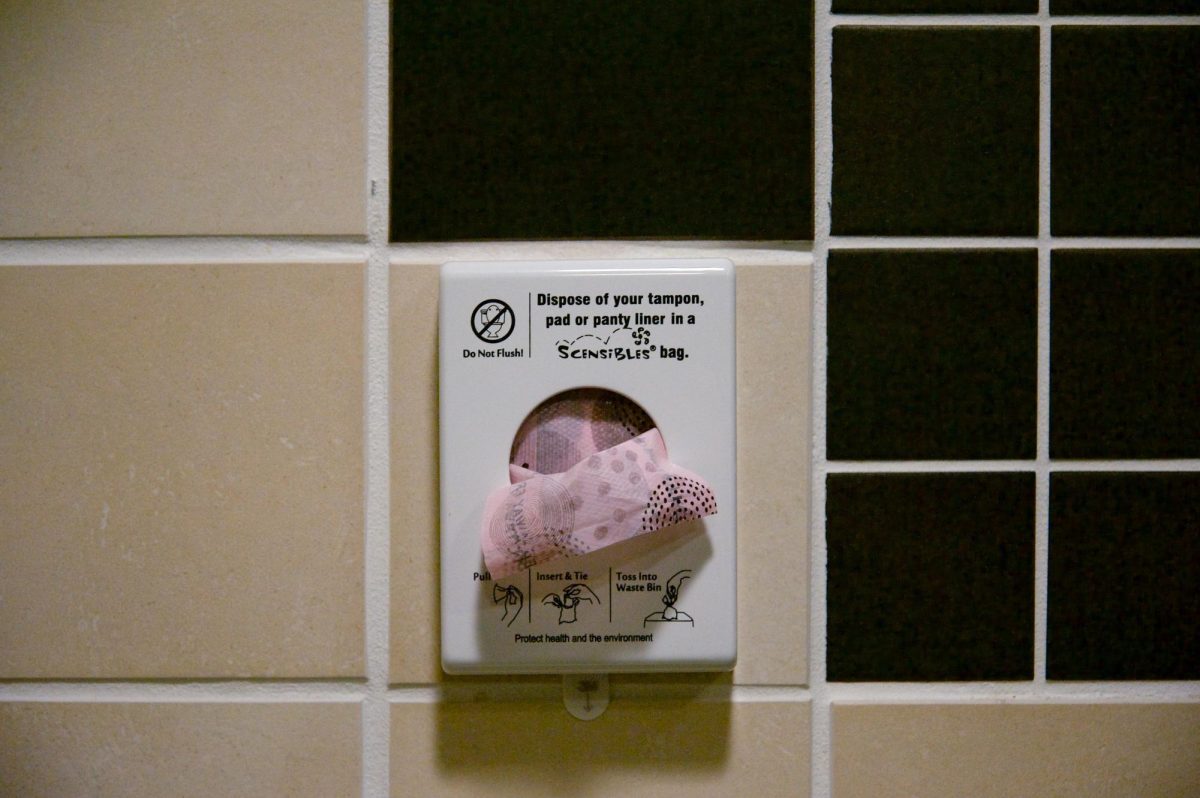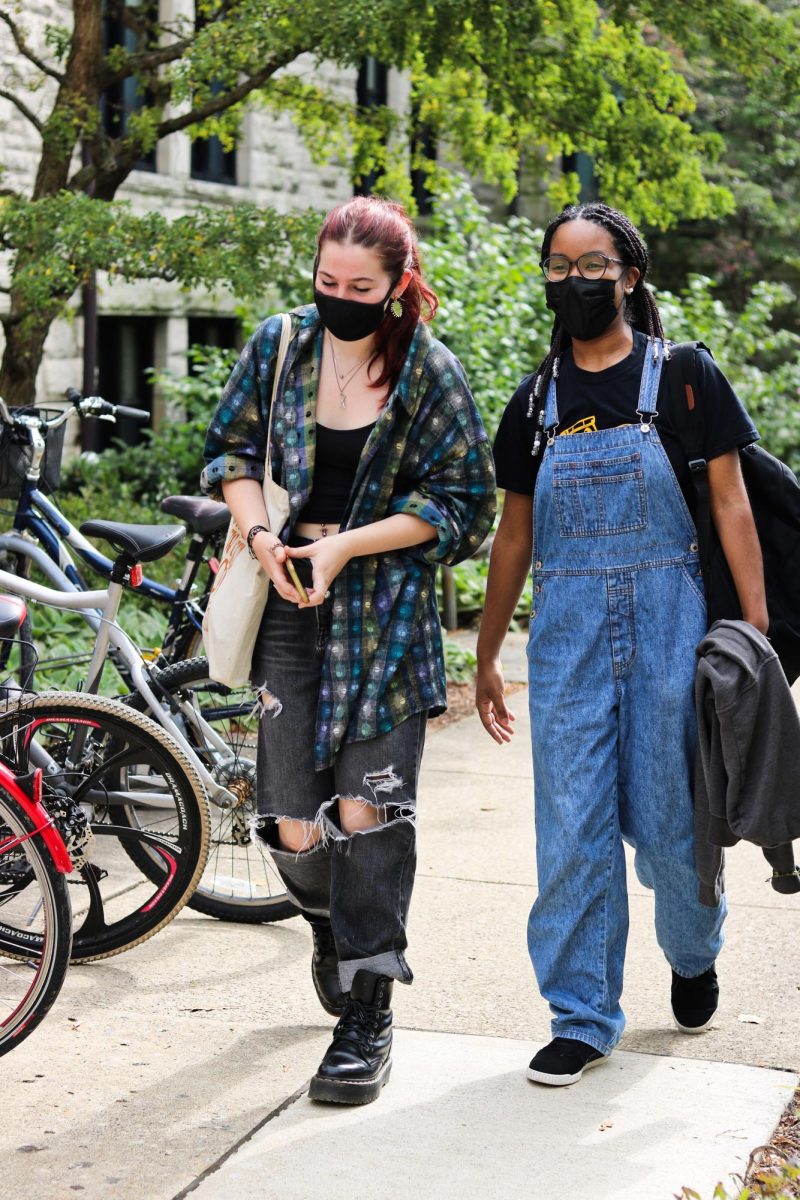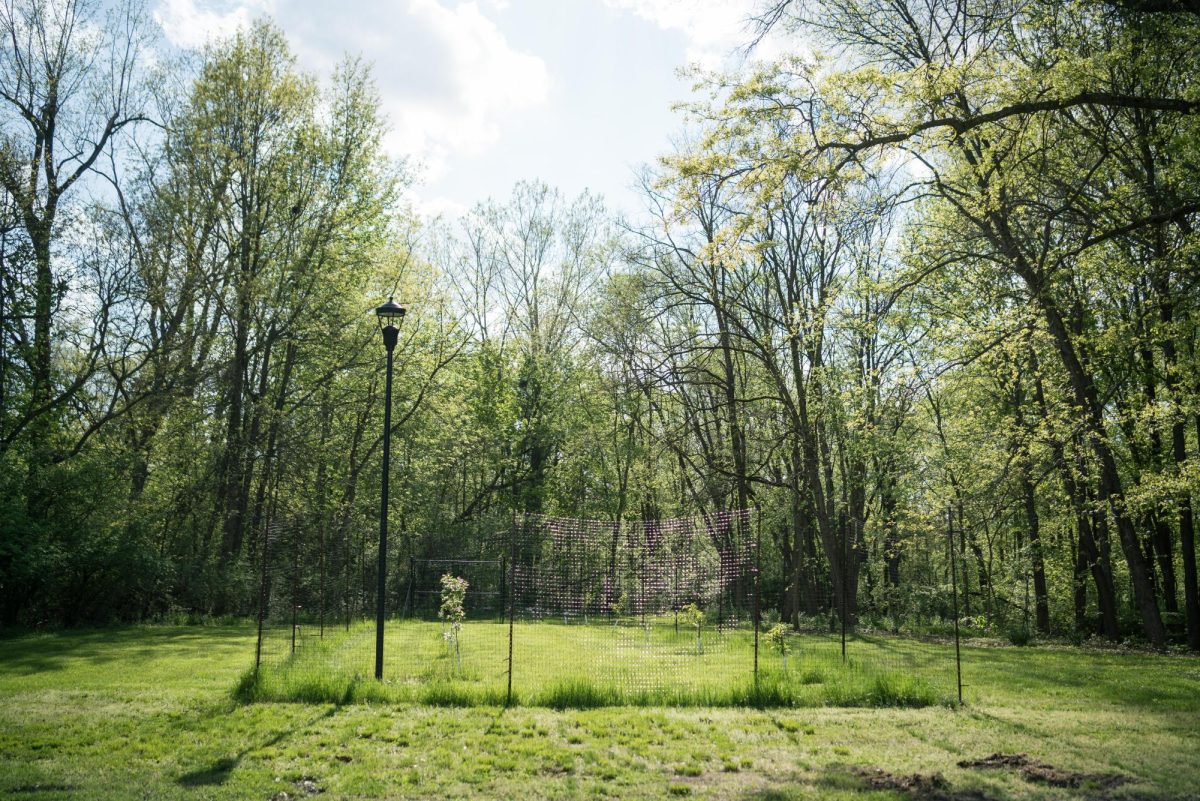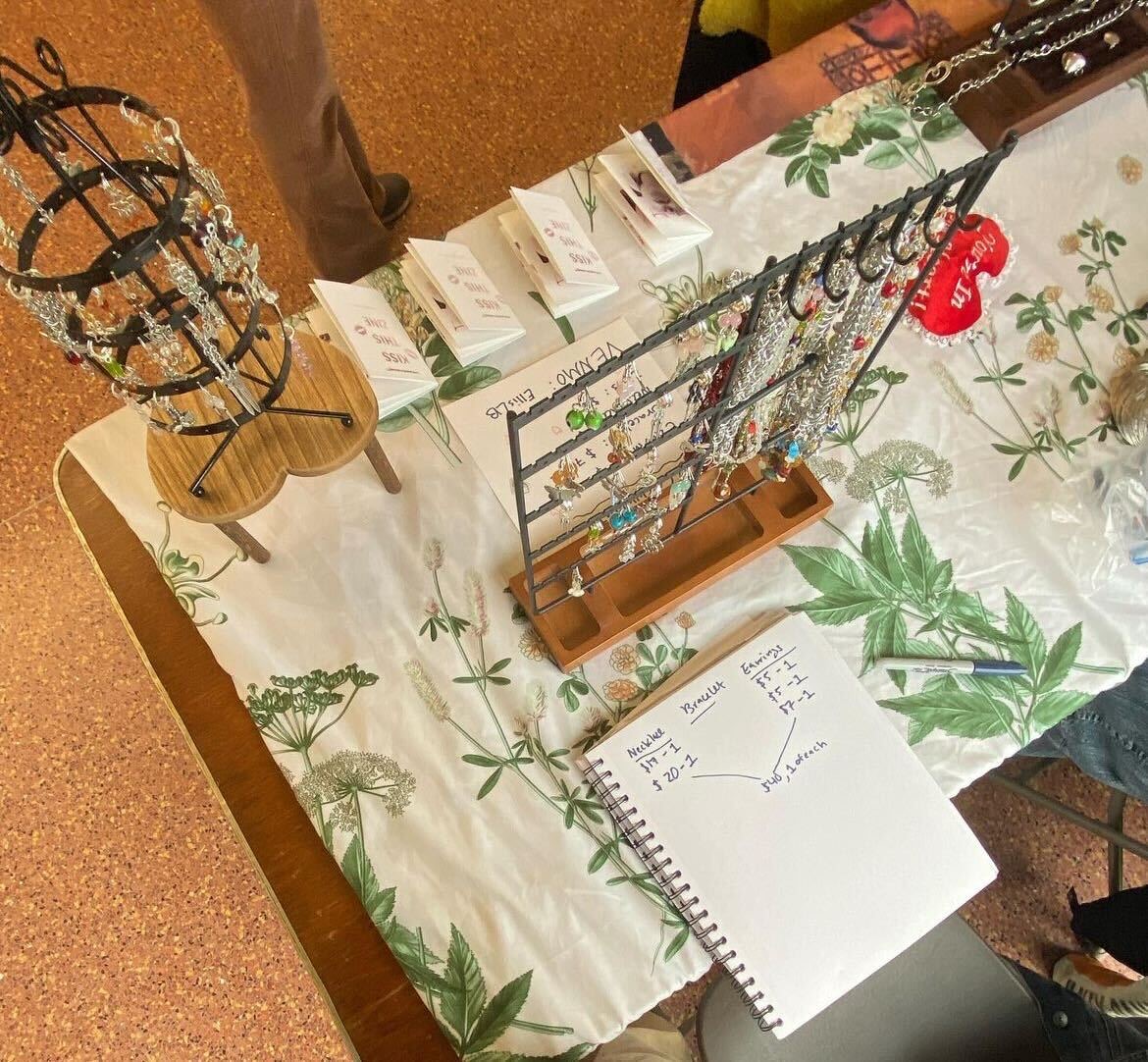Most people who menstruate are familiar with the small metal waste receptacles attached to stall walls in most public restrooms in America. Until coming to Oberlin, I took for granted the convenience and privacy of being able to dispose of used period products without leaving the stall. Instead of in-stall receptacles, most bathrooms on Oberlin campus and in dormitories are stocked with packs of pink plastic baggies. The box reads, “Scensibles: for sanitary disposal. Protect health and the environment.” I wonder how sensible this really is.
The first and most glaring issue with these bags is the waste they create. The box states that 20 percent of the plastic used in these bags is recycled, meaning that 80 percent of it is new. Now, 100 percent of that plastic is headed right for the landfill. Additionally, these bags are dyed and scented. According to an article published in Current Environmental Health Reports, scented menstrual products can be carcinogenic and endocrine disruptors, leading to a litany of health problems for both humans and animals. Some may wonder how this is a problem, since Scensibles bags are only briefly handled by users, but I think that the larger concern is the effect on the ecosystem as a whole. These toxic plastic bags don’t disappear when we throw them away. They end up in the waterways; they can affect animals, crops, livestock, and the health of people living near landfills. Even though student health may not be directly affected, we have a responsibility to our local and global communities. Oberlin is a wealthy institution with enough money to replace these toxic single-use plastic bags with the standard in-stall trash cans. To neglect this ecological imperative is a misuse of our privilege and a betrayal of the values we espouse.
Not only does Scensibles not “protect the environment,” as it claims, but I would also argue that it does little to “protect health.” WebMD, Healthline, and the CDC all agree that wrapping used pads and tampons in toilet paper is sufficient for public safety. Scensibles’ marketing is predicated on the narrative that periods are unhygienic or even toxic. Although any bodily waste can carry pathogens, a double standard is often applied to period blood.
“Nothing else we put in the garbage goes in a cute little bag,” College third-year Ruby Feuerstein said. “I’m not wrapping up my unfinished food or Kleenexes, and no one’s pressed about it.”
Indeed, period blood being treated as more hazardous than other waste is a story that has been used to humiliate and subjugate people with uteruses for thousands of years across many cultures. Scensibles perpetuates this misogynistic narrative. In fact, the most common response students gave when I brought up Scensibles was that they look like doggy bags. How demeaning.
Scensibles claims to mask the smell of period products, but many people who menstruate will wonder how necessary this is.
“I’ve always found these bags to be a complete waste of plastic,” College fourth-year Sophie Nelson said. “Just wrap your pad/tampon in toilet paper! I get that they’re designed to disguise the scent, but the vast majority of people can’t smell used period products properly disposed of in the trash.”
Although I do think that care should be taken when disposing of used menstrual products, I am skeptical of any product selling the same old story that periods are biohazards and that it is my responsibility to keep it out of sight.
I am not ashamed of my period. However, not everyone has the privilege to be so brazen. I am cis. Oberlin is full of young trans and genderqueer people, many of whom might experience menstruation-related dysphoria. This can be hard to navigate in a landscape where single-use bathrooms are few and far between. Instead of being able to dispose of menstrual products in the privacy of the stall, as is the standard in most public restrooms, Oberlin’s infrastructure insists on a walk of shame from the stall to the communal trash can — essentially outing whoever makes the trek.
This is compounded by the fact that Scensibles bags are baby pink and patterned with swirls and polka dots. Not only is this a bit infantilizing, but it needlessly genders menstrual products, further contributing to the transphobic narrative that the only people who bleed are women.
The idea of “gender-neutral” bathrooms is a nice one on paper, but in practice, it takes much more than a sign on the door to create a safe space for trans and queer people.
I did speak to one student, College third-year Mimi Montefiore, who told me that some students with disabilities, especially those that affect hand/grip strength, find using Scensibles Bags easier than wrapping products in toilet paper. I cannot deny that this is a compelling perspective. Who knows how many other Oberlin students with disabilities share this experience?
However, I also talked to two asthmatic students, who highlighted the challenges Scensibles bags pose for them.
“My asthma is triggered by anything strong-smelling,” first-year Megan Kyi said. “So the bags, and the smell, is something that triggers my asthma. So, if I do end up using them, I have to hold my breath and hold it away from me. I just don’t feel like the smell is necessary at all.”
Even though Scensibles bags may be necessary for some disabled students, others may find them harmful and potentially dangerous.
I believe that Oberlin College wants to be environmentally responsible. I do not think we stand with outdated, misogynistic fear-mongering. I believe that we value trans and disability inclusion.
But belief only gets you so far. Perhaps I’m being harsh on these bags. Perhaps there is some middle ground to be reached. But I am of the opinion that Scensibles bags should be phased out and replaced with in-stall waste receptacles.











